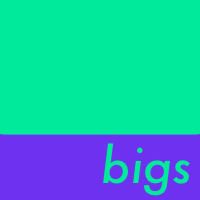| date | permalink | title | description | author | tags | |||
|---|---|---|---|---|---|---|---|---|
2019-07-20 |
/2019-07-22-ipfs-camp-content-first-batch/ |
2019 IPFS Camp 1st batch of recordings are out! |
David Dias |
|
You read it right, the recordings from IPFS Camp are starting to get out, grab them while they are HAWT 🔥
For this batch we have:
| Presenter | Name & GitHub handle | Topic | Slides | Recording |
|---|---|---|---|---|
| Justin Maier (@justmaier) and Victor Rortvedt (@twoirtter) | Introducing The Gathering, a web app built with Libp2p to improve in-person networking at conferences and gatherings | Video | ||
| Alex Potsides (@achingbrain) | npm on IPFS: Using IPFS to install your JavaScript dependencies 📦 | HTML | Video | |
| Shokunin (@leshokunin) | Building a Dropbox replacement on IPFS and Textile | Video | ||
| Makoto Inoue (@makoto) | ENS + IPFS: Using ENS as a naming system for IPFS | Video | ||
| Benjamin Kampmann (@gnunicorn) | Changing the record: Using substrate to add a custom blockchain to your IPFS dweb app | PDF - Google Slides | Video | |
| Andrew Nesbitt (@andrew) | Republishing a project's npm dependencies to IPFS as a micro-registry 📦 | N/A (video talk) | Video | |
| Blake Joyce (@bjoyce3) | Who wins in a fight: Superman, HTTPS, or IPFS? | Video | ||
| Pierre Neidhardt (@ambrevar) | Package distribution using IPFS on Guix 📦 | Video | ||
| Adrian Lanzafame (@lanzafame) | A quick look into the Pinning API proposal | Video | ||
| Dmitry Starodubcev (@xhipster) | CYB: Your personal robot on the Great Web | Video | ||
| Eric Myhre (@warpfork) | Solving the distributed naming problem (!) in the applied cases of package management 📦 | Video | ||
| Héctor Sanjuán (@hsanjuan) | go-ds-crdt: CRDT KV stores arrive in go-land | HTML | Video | |
| Brendan O'Brien (@b5) | Using dsync for point-to-point DAG transfer | Video | ||
| Andrew Hill (@andrewxhill) | Content addressing and personal data sovereignty | Video | ||
| Kinuko Yasuda (@kinu) and Jim Pick (@jimpick) | Signed exchanges in Chrome | Video | ||
| Edgar Lee (@hinshun) | Containerd meets IPFS | Video | ||
| Antoine Eddi (@aeddi) | Implementing libp2p over Bluetooth Low Energy | Video | ||
| Irakli Gozalishvili (@gozala) | Inter Planetary Data Feed (IPDF) | Video | ||
| Gonçalo Pestana (@gpestana) | Privacy in P2P networks: DHTs and IPFS | Video | ||
| Victor Grishchenko (@gritzko) | An overview of RON | Video | ||
| Rüdiger Klaehn (@rklaehn) | Actyx's experiences on building with IPFS | Video | ||
| Jonathan Budd (@cesarosum) | Peergos: E2E encrypted storage and social network on IPFS | Video | ||
| André Cruz (@satazor) | Introducing Nomios | Website | Video | |
| Alexandre Trottier (@postables) | Why open source matters and how individuals can further the movement | Video | ||
| Andrew Hill (@andrewxhill) | Textile | SLIDES | Video | |
| Matt Ober (@obo20) | IPFS Industry Trends | SLIDES | Video | |
| Zhanna Sharipova (@sharipova) | Anytype | SLIDES | Video |
| Topic | Owner | Description | Recording |
|---|---|---|---|
| HTTP gateways |  @autonome |
An IPFS Gateway acts as a bridge between traditional web browsers and IPFS. | Video |
| The intricacies of DWeb Addressing |  @lidel |
Systems like IPFS use hashes of data to reference content by itself, rather than by an arbitrary location/name. With this comes compatability and human concerns around referencing data. | Video |
| IPLD Selectors |  @maparent |
IPLD Selectors are expressions that identify ("select") a subset of nodes in an IPLD dag. i.e. subsets of IPLD objects. | Video |
| Graphsync |  @b5 |
A protocol to synchronize graphs across peers. | Video |
| KeyStore |  @gozala |
A secure and simple way of storing and managing keypairs (for IPFS services). | Video |
| NPM-on-IPFS |  @achingbrain |
Let's take NPM and put it on IPFS. | Video |
| DAG walking facilities in IPLD |  @warpfork |
The goal of IPLD is to enable decentralized data-structures that are universally addressable and linkable. | Video |
| IPFS/libp2p PubSub |  @whyrusleeping |
Publish-Subscribe, called ‘pubsub’ for short, is a pattern often used to handle events in large-scale networks. | Video |
| CRDTs |  @parkan |
A "Conflict-free replicated data type" is a data structure which can be replicated across multiple computers in a network, without conflicts! | Video |
| IPFS Nodes |  @carsonfarmer |
A general overview of what it means to be/implement an IPFS node. | Video |
| IPFS DHT |  @gpestana |
IPFS uses a Distributed Hash Table (DHT) to keep track of various types of data, such as content provider records. | Video |
| Mutable File System (MFS) |  @leshokunin |
Mutable File System (MFS) is a tool built into IPFS that lets you treat files like you would a normal name-based filesystem. | Video |
| Bitswap |  @jacobheun |
Bitswap is the data trading module for IPFS. Its purpose is to request blocks from and send blocks to other peers in the network. | Video |
| PeerPad internals |  @jimpick |
PeerPad is a decentralized editor that allows concurrent writing of text. | Video |
| go-ipfs Infrastructure |  @stebalien |
This topic should cover what it takes to initialize a go-IPFS node, and connect it to a public P2P network. | Video |
| IPFS Cluster |  @meiqimichelle |
IPFS Cluster is a stand-alone application and a CLI client that allocates, replicates, and tracks pins across a cluster of IPFS daemons. | Video Part-1 Video Part-2 |
| Textile internals |  @andrewxhill |
Textile is a set of tools and trust-less infrastructure for building censorship resistant and privacy preserving applications. | Video |
| The design of the IPFS Repo |  @dignifiedquire |
A repo is the storage repository of an IPFS node. It is the subsystem that actually stores the data IPFS nodes use. | Video |
| IPFS/Libp2p content routing |  @bigs |
The IPFS routing system utilizes "content provider records" hosted on a distributed key-value store to resolve content providers. | Video |
| Circuit Relay |  @ianopolous |
The circuit relay is a means to establish connectivity between libp2p nodes (e.g. IPFS nodes) that wouldn't otherwise be able to establish a direct connection to each other. | Video |
| Swarming (concept) |  @mburns |
Swarming is a software method that takes advantage of multiple peers (the "swarm") to fulfill a task which may be easily distributed. | Video |
| IPNS |  @aschmahmann |
IPNS is a system for creating and updating mutable links to IPFS content. | Video |
If you are interested in receiving an update when the next calls are out, you can do this in one of the following ways:
- Watch and Star the ipfs/camp repo, where all the content will live ad-eternum.
- Subscribe to the RSS feed of this blog.
- Subscribe to the IPFS Weekly Newsletter if you are interested in general IPFS updates.
- Subscribe to the IPFS Events Newsletter if you are interested in IPFS events.
Enjoy all the recordings and have a great week!